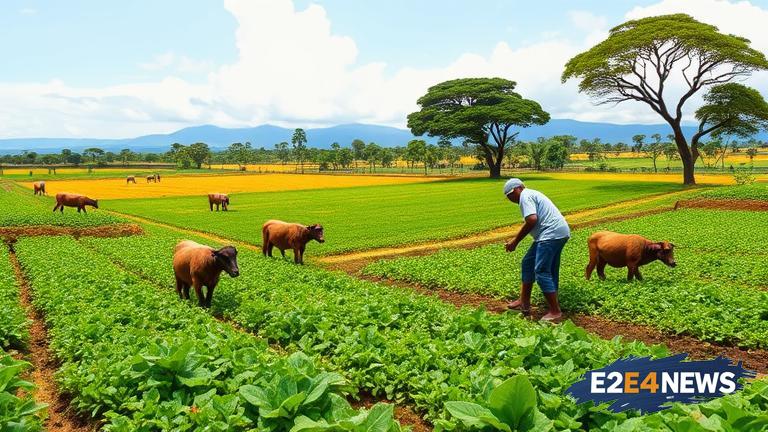The Malawi government has come under scrutiny for its decision to shift focus from the Agricultural Input Programme (AIP) to commercial farming and input loans. The AIP, which was introduced in 2013, aimed to provide subsidized farm inputs to smallholder farmers. However, the government has defended its decision, stating that the programme was not sustainable and did not have a significant impact on agricultural productivity. The government has instead decided to focus on commercial farming and input loans, which it believes will improve agricultural productivity and food security. The decision has been met with criticism from some quarters, with some arguing that it will negatively impact smallholder farmers who rely on the AIP for their livelihoods. However, the government has assured that it will continue to support smallholder farmers through other initiatives. The shift in focus is part of the government’s broader strategy to improve the agricultural sector, which is the backbone of the country’s economy. The government has also announced plans to increase funding for the agricultural sector, with a focus on commercial farming and irrigation. The move is expected to improve agricultural productivity and increase food production, which will in turn improve food security. The government has also emphasized the importance of private sector involvement in the agricultural sector, stating that it will work with private companies to provide input loans to farmers. The input loans will be provided at a subsidized interest rate, making it easier for farmers to access credit. The government has also announced plans to establish an agricultural bank, which will provide financial services to farmers. The bank will provide loans, savings, and other financial services to farmers, making it easier for them to access credit and manage their finances. The government has also emphasized the importance of irrigation in improving agricultural productivity, stating that it will invest in irrigation infrastructure to support commercial farming. The move is expected to improve agricultural productivity and increase food production, which will in turn improve food security. The government has also announced plans to establish an agricultural insurance scheme, which will provide insurance coverage to farmers against crop failure and other risks. The scheme will be designed to protect farmers against losses, making it easier for them to invest in their farms. The government has also emphasized the importance of research and development in improving agricultural productivity, stating that it will invest in research and development to improve crop yields and disease resistance. The move is expected to improve agricultural productivity and increase food production, which will in turn improve food security. The government has also announced plans to establish an agricultural extension service, which will provide training and support to farmers. The service will provide training on best practices, making it easier for farmers to improve their productivity. The government has also emphasized the importance of private sector involvement in the agricultural sector, stating that it will work with private companies to provide training and support to farmers. The move is expected to improve agricultural productivity and increase food production, which will in turn improve food security. The government has also announced plans to invest in agricultural infrastructure, including roads, storage facilities, and markets. The move is expected to improve agricultural productivity and increase food production, which will in turn improve food security. The government has also emphasized the importance of improving the business environment for farmers, stating that it will work to reduce bureaucracy and improve access to markets. The move is expected to improve agricultural productivity and increase food production, which will in turn improve food security. The government has also announced plans to invest in agricultural technology, including precision agriculture and drones. The move is expected to improve agricultural productivity and increase food production, which will in turn improve food security. The government has also emphasized the importance of improving the livelihoods of smallholder farmers, stating that it will work to improve their access to markets and credit. The move is expected to improve agricultural productivity and increase food production, which will in turn improve food security. The government has also announced plans to establish an agricultural policy framework, which will provide a roadmap for the development of the agricultural sector. The framework will be designed to improve agricultural productivity and increase food production, which will in turn improve food security. The government has also emphasized the importance of improving the coordination and collaboration between different stakeholders in the agricultural sector, stating that it will work to improve the coordination and collaboration between government agencies, private companies, and farmers. The move is expected to improve agricultural productivity and increase food production, which will in turn improve food security.
